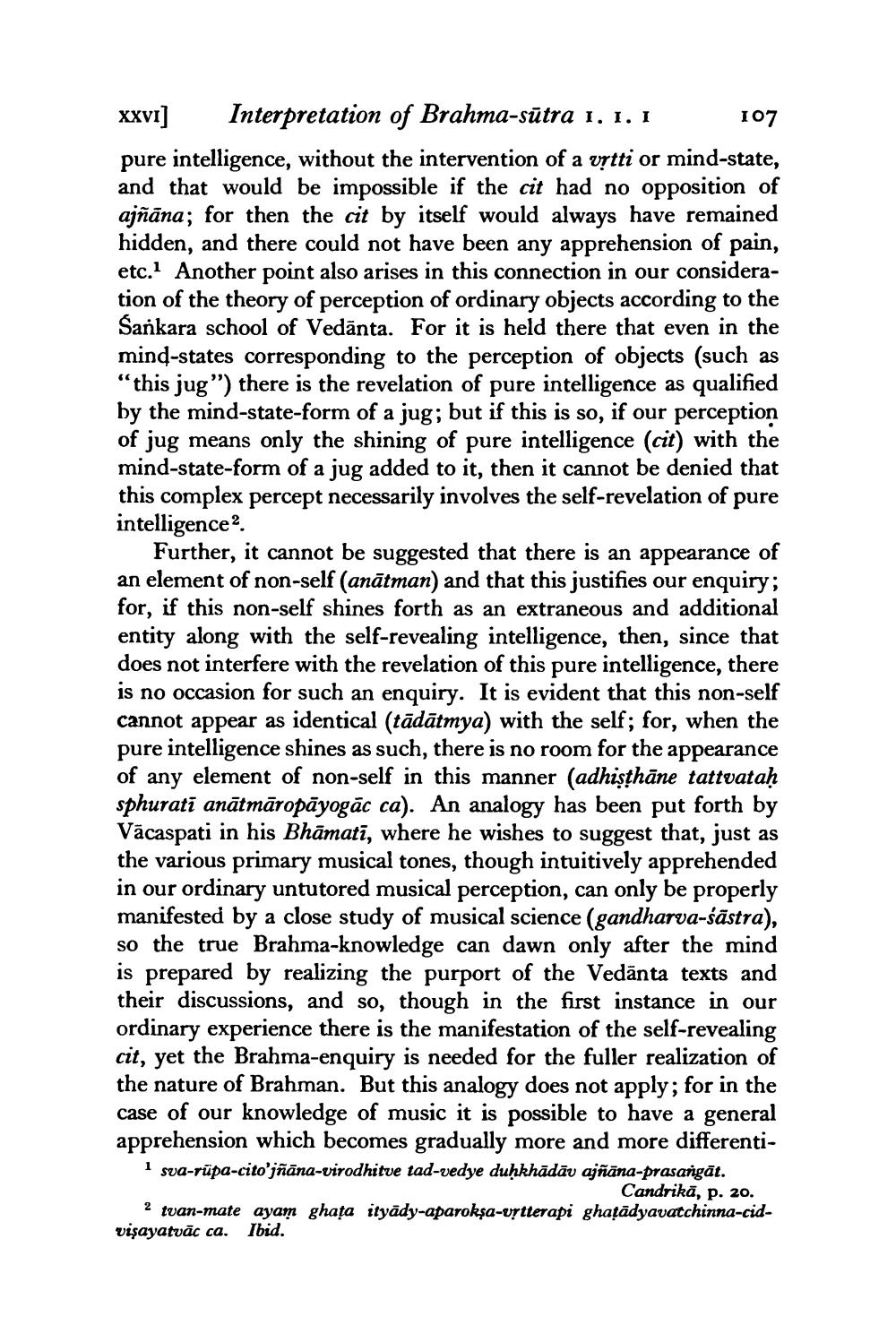________________
XXVI]
Interpretation of Brahma-sūtra 1. 1. I
pure intelligence, without the intervention of a vṛtti or mind-state, and that would be impossible if the cit had no opposition of ajñāna; for then the cit by itself would always have remained hidden, and there could not have been any apprehension of pain, etc.1 Another point also arises in this connection in our consideration of the theory of perception of ordinary objects according to the Sankara school of Vedanta. For it is held there that even in the mind-states corresponding to the perception of objects (such as "this jug") there is the revelation of pure intelligence as qualified by the mind-state-form of a jug; but if this is so, if our perception of jug means only the shining of pure intelligence (cit) with the mind-state-form of a jug added to it, then it cannot be denied that this complex percept necessarily involves the self-revelation of pure intelligence 2.
Further, it cannot be suggested that there is an appearance of an element of non-self (anātman) and that this justifies our enquiry; for, if this non-self shines forth as an extraneous and additional entity along with the self-revealing intelligence, then, since that does not interfere with the revelation of this pure intelligence, there is no occasion for such an enquiry. It is evident that this non-self cannot appear as identical (tādātmya) with the self; for, when the pure intelligence shines as such, there is no room for the appearance of any element of non-self in this manner (adhiṣṭhāne tattvataḥ sphuratī anātmāropāyogāc ca). An analogy has been put forth by Vacaspati in his Bhāmatī, where he wishes to suggest that, just as the various primary musical tones, though intuitively apprehended in our ordinary untutored musical perception, can only be properly manifested by a close study of musical science (gandharva-śāstra), so the true Brahma-knowledge can dawn only after the mind is prepared by realizing the purport of the Vedanta texts and their discussions, and so, though in the first instance in our ordinary experience there is the manifestation of the self-revealing cit, yet the Brahma-enquiry is needed for the fuller realization of the nature of Brahman. But this analogy does not apply; for in the case of our knowledge of music it is possible to have a general apprehension which becomes gradually more and more differenti
107
1 sva-rupa-cito'jñāna-virodhitve tad-vedye duḥkhādāv ajñāna-prasangāt.
Candrikā, p. 20.
2 tvan-mate ayam ghata ityady-aparoksa-vṛtterapi ghaṭādyavatchinna-cidvisayatvāc ca. Ibid.




